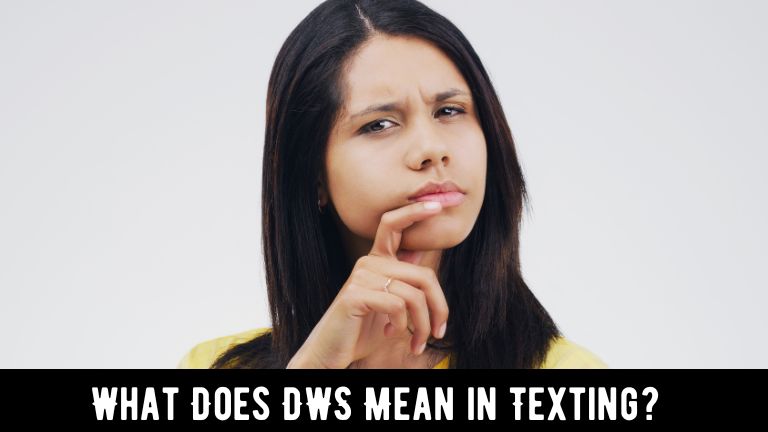What Does DWS Mean in Texting?

Texting has become an integral part of modern communication, with its own unique language and abbreviations. One such abbreviation that you might come across while texting is “DWS.”
If you’re wondering what DWS means in texting and how to interpret it, you’ve come to the right place! In this article, we’ll explore the meaning of DWS in texting, its common usage, and provide some examples to help you understand its context. So, let’s dive in and unravel the mystery of DWS!
What Does DWS Stand for?
DWS is an acronym commonly used in texting and online messaging. It stands for “Driving While Stupid”. This term is often used to describe someone who is engaging in reckless or careless behavior while operating a vehicle. It implies that the person is not paying attention to the road or is engaging in other distracting activities, such as texting, talking on the phone, or even eating.
Usage and Examples of DWS
1. DWS in the Context of Reckless Driving
DWS is typically used to express disapproval or to criticize someone’s behavior while driving. For example, imagine a scenario where a friend texts you about witnessing a driver who is swerving in and out of lanes, texting on their phone, and almost causing accidents. Your friend might say:
“OMG, just saw a driver DWS! They were texting and nearly hit a pedestrian.”
In this context, DWS is used to highlight the dangerous behavior of the driver and the potential consequences that can arise from such actions.
2. DWS as a Humorous Expression
Sometimes, DWS is used more lightheartedly to describe funny or silly driving moments. For instance, imagine you and your friends are on a road trip, and one of them takes a wrong turn. You might jokingly say:
“Haha, you’re totally DWS right now! We were supposed to take the next exit.”
Here, DWS is used playfully to poke fun at your friend’s navigation mishap, emphasizing the momentary lapse in judgment while driving.
3. DWS in Online Conversations
DWS can also find its way into online discussions and forums, where individuals share anecdotes or videos related to reckless driving. For instance, someone might comment on a video of a driver performing dangerous stunts on the road by saying:
“This guy definitely wins the DWS award for the year! Who drives like that?”
In this scenario, DWS is used as a sarcastic remark to highlight the absurdity of the driver’s behavior.
Conclusion
In the realm of texting and online messaging, abbreviations like DWS can add a touch of expressiveness and brevity to our conversations. However, it’s crucial to remember that DWS stands for “Driving While Stupid” and refers to reckless or careless behavior behind the wheel.
While it may be used humorously or playfully in some contexts, it’s essential to promote responsible driving and prioritize the safety of ourselves and others on the road.
So, the next time you encounter DWS in a text message or online conversation, you’ll have a good understanding of its meaning and can respond appropriately.
FAQs about DWS in Texting
While DWS is used in some texting circles, it is not as prevalent as other commonly used abbreviations like LOL or OMG.
Yes, acronyms can have multiple meanings depending on the context. However, in the context of texting, DWS primarily refers to “Driving While Stupid.”
Abbreviations like DWS can be used globally, as texting has become a popular form of communication worldwide. However, its usage might vary among different cultures and regions.
Engaging in reckless or distracted driving can lead to legal consequences, such as fines, license suspension, or even criminal charges, depending on the severity of the offense and local traffic laws.
It’s essential to consider the context and the people you’re conversing with. While DWS can be used jokingly among friends, it’s important to remember that reckless driving is a serious matter and should not be encouraged or celebrated.
Yes, many organizations and government agencies promote safe driving practices and raise awareness about the dangers of distracted or reckless driving. These campaigns aim to reduce accidents and promote responsible behavior on the road.



